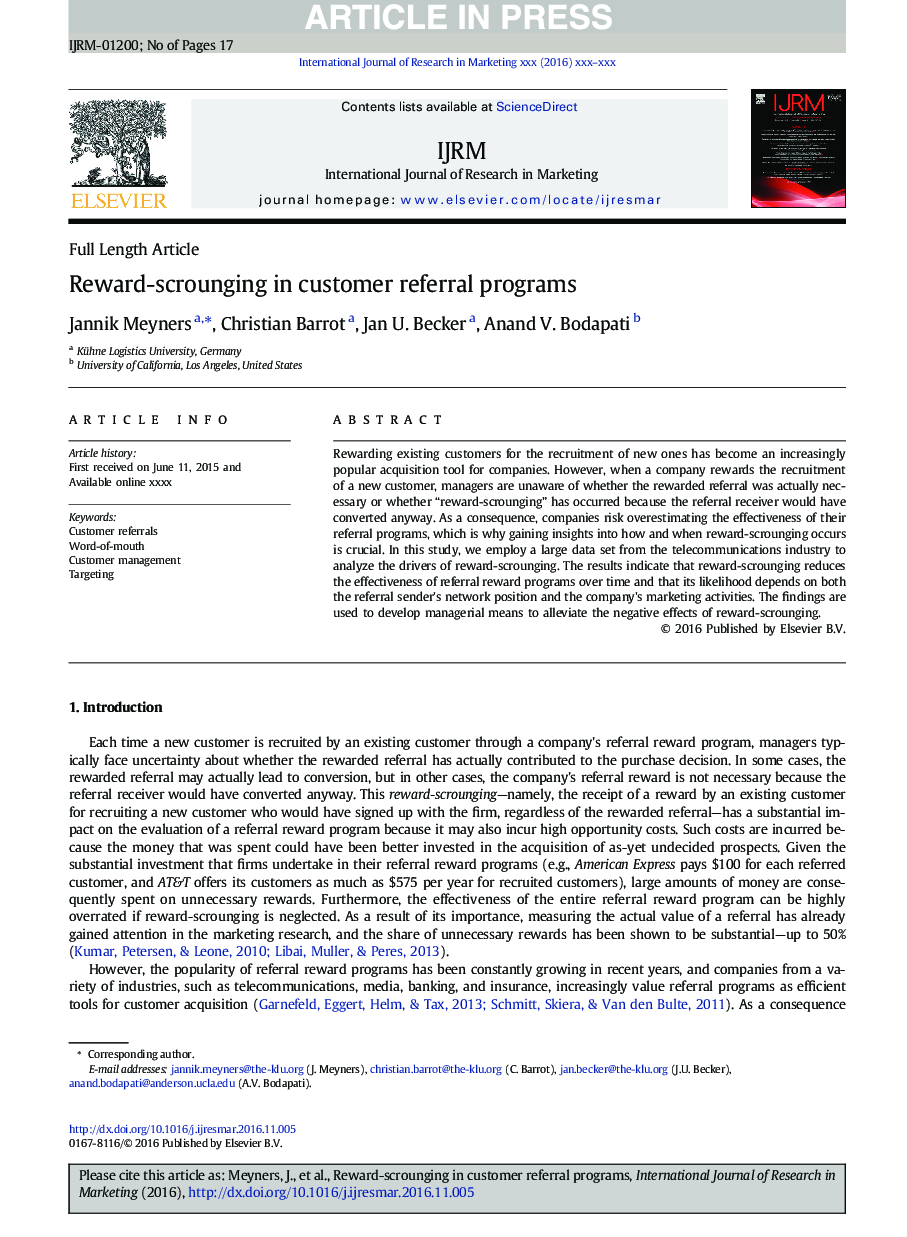| Article ID | Journal | Published Year | Pages | File Type |
|---|---|---|---|---|
| 5033740 | International Journal of Research in Marketing | 2017 | 17 Pages |
Abstract
Rewarding existing customers for the recruitment of new ones has become an increasingly popular acquisition tool for companies. However, when a company rewards the recruitment of a new customer, managers are unaware of whether the rewarded referral was actually necessary or whether “reward-scrounging” has occurred because the referral receiver would have converted anyway. As a consequence, companies risk overestimating the effectiveness of their referral programs, which is why gaining insights into how and when reward-scrounging occurs is crucial. In this study, we employ a large data set from the telecommunications industry to analyze the drivers of reward-scrounging. The results indicate that reward-scrounging reduces the effectiveness of referral reward programs over time and that its likelihood depends on both the referral sender's network position and the company's marketing activities. The findings are used to develop managerial means to alleviate the negative effects of reward-scrounging.
Related Topics
Social Sciences and Humanities
Business, Management and Accounting
Marketing
Authors
Jannik Meyners, Christian Barrot, Jan U. Becker, Anand V. Bodapati,
